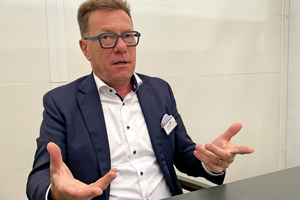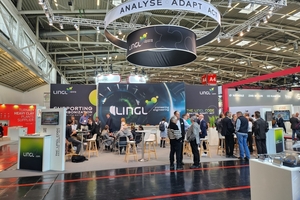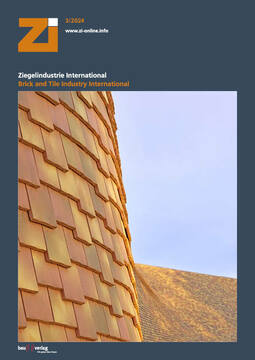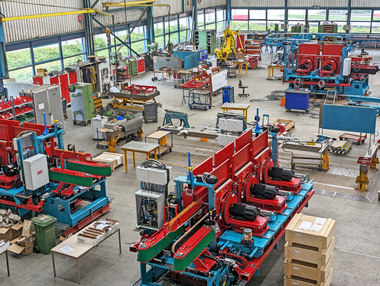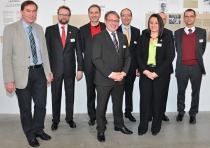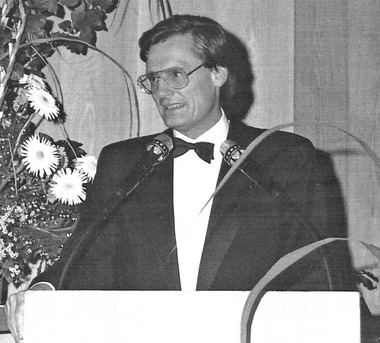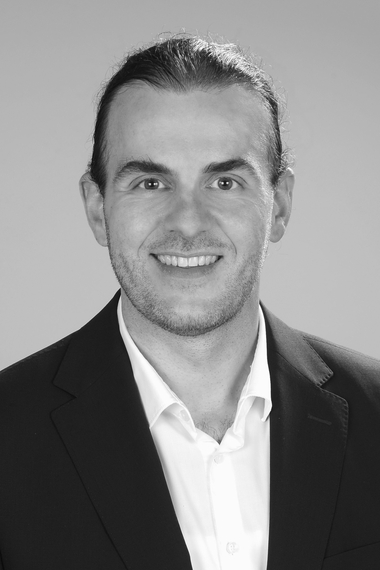Krumbach investor joins Lingl
The Krumbach-based company Lingl has had a new majority shareholder and a new name since 1 April 2024. Hermann Frentzen, entrepreneur from Krumbach, wants to continue the operational business and the successful machine and plant engineering tradition with LINGL SOLEAD GmbH. He is supported by the management team of the former Lingl Anlagenbau GmbH: Managing Director Joachim Eibel, Sales Manager Karl Liedel, Head of Service Bernd Braun, Head of Technology Markus Martl and Commercial Manager Frank Staudenmaier. Other minority shareholders are three entrepreneurs from the region, the Welzhofer brothers. As majority shareholders in a second company that owns Lingl’s land and buildings, they are the landlords of LINGL SOLEAD.
Hermann Frentzen, born in Mönchengladbach in 1959, trained as a tax assistant and studied finance and taxation. He has been active as an entrepreneur in various sectors for almost four decades. Among other things, Frentzen developed and managed the business of a company for outdoor living and sun protection systems in the Bavarian-Swabian region between 1994 and 2012. He has supported other companies as a shareholder or on the supervisory board. He has lived in Krumbach since 2009.
At Ceramitec 2024, the ZI editorial team had the opportunity to talk to Mr Frentzen about the future of the company, the background to his decision and his plans.
Mr Frentzen, why are you investing in a company that has gone bankrupt three times?
Hermann Frentzen (HF): The short answer is that I was in the favourable position of wanting and being able to help my home country. I live in Krumbach and Lingl is a very important employer there. Liquidating the company would have had an impact on the town and the region. As a trained business economist and passionate entrepreneur of many years’ standing, I was also surprised that a traditional company with an excellent reputation was beginning to falter again.
What convinced you that it was worth joining Lingl?
HF: There were two insights behind this decision: The company is well positioned in terms of substance and the problems lay mainly in the financing structure. Lingl’s key business figures had a few surprises in store. In the insolvency year 2023, the per capita turnover was 250,000 euros, an excellent figure. The complaint rate was a fantastic 0.3 per cent. In the year of insolvency, Lingl would have generated sales of around 52 million euros with a profit of 2 million euros with only the minimum equity capital. These figures showed a fundamentally healthy company with good prospects. This result, two years after the last insolvency in 2021, also underlined the great performance of the management. Dr Eibel has successfully adapted the business model to market requirements. That is why he will remain the operational Managing Director.
So what was the catch with Lingl?
HF: In mechanical engineering, two factors are decisive for a company: the amount of basic financing and the guarantee line. The loss of the guarantee line triggered the insolvency in 2023. This came about because Schug Group put Lingl together with its sister companies Lippert GmbH & Co. KG and Trafö Lagersysteme GmbH & Co. KG under a joint financing framework. Therefore, when Lippert became non-performing, the banks cancelled the guarantee line for all of them. Although business was going well, the rug was pulled out from under Lingl’s feet overnight. Without a guarantee to secure the client, nobody was prepared to give Lingl an order. The equity capital was too low to be an alternative.
Does that mean that business could continue with a surety bond?
HF: No, a serious new start as a company requires financial independence. On the one hand, this can be achieved by significantly increasing the equity ratio. Higher equity gives you more room for manoeuvre. It’s like the engine capacity in a combustion engine car. More cubic capacity gives you more options on the road. On the other hand, Lingl needs a sufficient guarantee line tailored to its needs. This is the only way we can tackle major projects again, regain the trust of our customers and prevent another insolvency. That’s why I also worked with the bank on a solution for the company that preserves its independence.
Is that why you extended the circle of shareholders to include the management and division heads?
HF: It was less about a lack of capital and more about a new corporate and management culture. I wanted to encourage more entrepreneurial behaviour in management and promote a personal interest in the company’s development through personal involvement. 15 per cent of the company shares are now in the hands of the management. This involvement was an essential prerequisite that I set before joining Lingl.
What is your goal with Lingl?
HF: I want to make Lingl profitable in the long term and increase the company’s value. Profit is the only thing that generates a future, secures jobs and enables innovation. This will help us to arrange financing more independently and on better terms in the future. Ultimately, I want Lingl to impress employees, customers and banks as a brand and as a provider of technical solutions. The company has proven that it has the potential to stand on its own two feet.
How do you intend to realise this potential?
HF: There are five core competences in the company that we need to expand in order to develop a solid perspective.
In the area of research and development, we want to focus more on innovation and patents. Decarbonisation and digitalisation offer good opportunities for this. The demand is there and Lingl has already been active in both areas for years. We should position ourselves broadly, optimise old technologies and pursue new ones depending on the circumstances.
The second core competence is a strong construction department. We must continue and promote the development that has taken place over the past two and a half very successful years. On the one hand, this includes optimising processes and setting up flagship projects both internally and externally. On the other hand, we will reduce vertical integration and work with specialists. However, final assembly will remain an in-house effort.
Thirdly, we want to further professionalise project management. Lingl already has good planning, management and control structures. We want to expand these through digitalisation, among other things. We need to demonstrate our ability to manage complex projects in order to gain the trust of our customers for larger projects.
Fourthly, we will continue to expand our already very successful service business. Last year, service orders accounted for around a third of sales. In addition, the service and new projects business areas are inextricably linked. Service generates ongoing contact with customers through repairs, consultations and the exchange of information, which is reflected in new orders.
Fifthly, the employer brand should be strengthened. We have a strong assembly team, which I would like to expand. That is why it is important to me that we attract young people. Although there is a lot of competition for mechanical engineers in the region, our opportunity is to score points as a family-run company.
What is the new name LINGL SOLEAD all about?
HF: We had to give the company a new name for the relaunch. Because of the company’s history, the name Lingl is associated with bad news, both in the analogue public and on the Internet. At the same time, the name is familiar to customers and employees are proud of it. That’s why we decided to add the word Solead to the Lingl name, which sounds like solid and contains the English word for leadership. The vision behind the name is to return to a position in the market with technically leading solutions.
What does the company structure look like?
HF: LINGL SOLEAD GmbH has two subsidiaries, Lingl UK and Lingl Service GmbH. Under the second company there are three further subsidiaries focussing on certain important foreign markets: Lingl Incorporation America, Lingl Algeria and Lingl Russia. Russia is currently a difficult market. Business is largely suspended and we are complying with all sanctions. But we don’t want to give up our presence there. Because not every Russian thinks like Putin and the Russian market will grow again after the end of the war.
What does the immediate future look like?
HF: Lots of travelling and lots of appointments. I want to immerse myself in the industry and get to know the partners involved. That means being present, also on site, getting in touch with customers and service providers and listening. When I’m not on tour with Karl Liedel, I’ll be at the company. Direct communication with employees is very important to me. I also want to find out about the business. I’m the oldest apprentice in the company, so to speak, even though I’ve brought in the most money.

